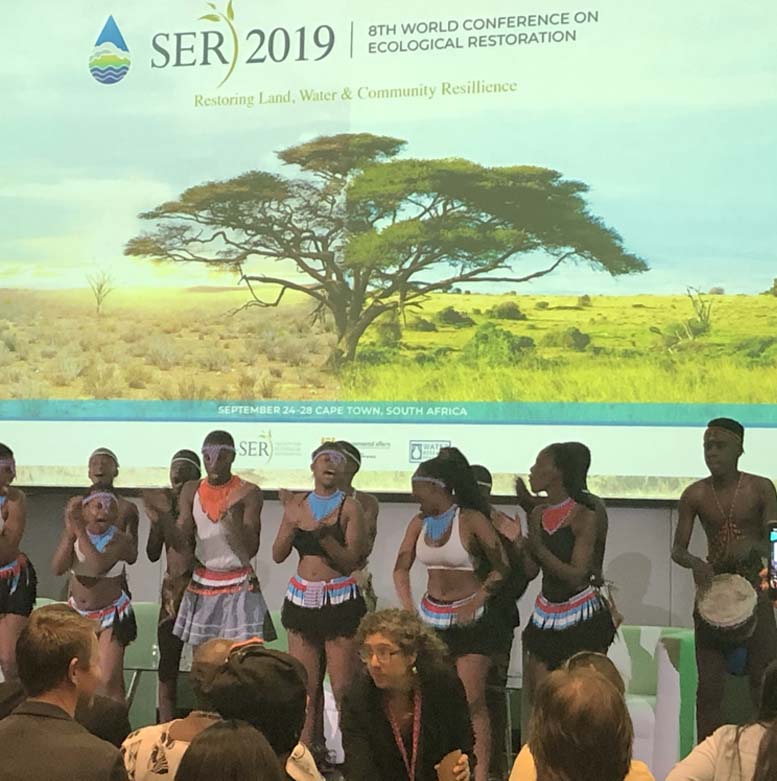By Jen Ford, Principal Restoration Ecologist
In September I presented and participated in the Society of Ecological Restoration (SER) 8th World Conference in Cape Town, South Africa. More than 850 delegates attended from 68 countries. The main themes of the conference were cultural approaches to restoration, restoration for water security, economics of restoration, and implementing restoration on a global scale. It has always been clear to me that ecological restoration is key to healing our land, sea, people and communities and restoration activities are a way of healing our relationship to the planet. At this conference, these ideas were fully cemented and apart from being inspired and learning from many presentations, it became clearer that as practitioners, politicians, academics and communities we need to work better together as we embark on the UN decade of Ecosystem Restoration (2021-2030). More than 2 billion hectares globally are in need of restoration and scaling up our efforts is essential to fight the climate crisis as well as enhancing food security, water supply and biodiversity. I am fired up and ready to work with as many partners as possible to influence the real change that is required.
“Attached are some photos from my trip, the first photo showing part of the opening ceremony of the conference. I’ve also included a few flora shots and penguins that were taken in Cape Town. I started in the desert in Namibia and travelled into Central Kalahari where I hugged a 1500 year old Baobab, before exploring the Okavango Delta, Chobe National Park and Victoria Falls (i.e. across Botswana and into Zimbabwe). It was the end of the dry season which was great for viewing animals, but nothing prepared me for how dry the largest inland delta in the world was. This is largely because the main river has now been dammed in Angola for growing rice. It is already devastating communities, nature and livestock. Other photos were taken on a walking safari in South Africa, which were taken on foot with no protection of a vehicle!”
For more information please contact jford@ecosure.com.au
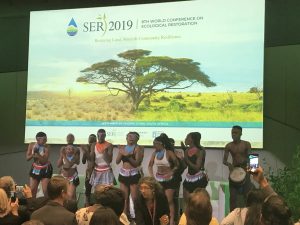
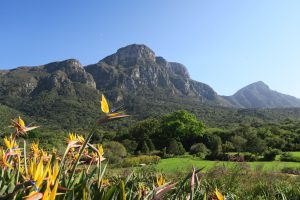


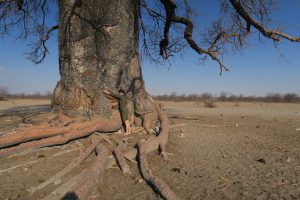
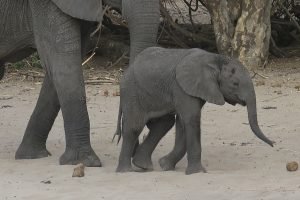



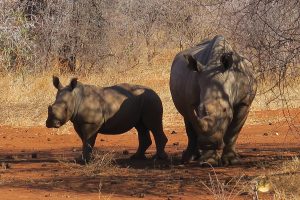

Below is a message and ‘call to arms’ from the 8th World Conference on Ecological Restoration (SER2019) Cape Town, South Africa, September 28, 2019
Cape Town Call to Action on Ecological Restoration: One Earth, One Future, One Chance
Seventy percent of the planet’s terrestrial landscapes are damaged by humans; our oceans, lakes and rivers are polluted and collapsing. We are degrading the planet at a pace that profoundly exceeds the pace of repair. We caused these problems. We must solve these problems.
Ecological restoration saves species; protects livelihoods; cleans water, air, and land; creates healthy soils; and reverses climate change.
This call to action is issued on behalf of more than 800 SER2019 delegates, including restoration practitioners and researchers, community leaders, and representatives of non-governmental organisations, private businesses, and government agencies from 68 countries. We met to address the urgent need for ecological restoration as the key nature-based solution to the challenges of climate change.
We urge governments, industries, communities and all those able to contribute around the world to join us in elevating the United Nations Decade on Ecosystem Restoration to:
- Engage stakeholders at all levels to heal their land and communities;
- Value the contribution of traditional and local ecological knowledge to solving our
- complex issues;
- Create sustainable long-term employment by developing robust restoration economies,
- and the business and financial infrastructure to support it; and
- Use nature-based solutions to build enduring, resilient ecosystems that deliver the full
- suite of services that society and future generations need to survive and thrive.
Conservation alone is not enough. Carbon sequestration alone is not enough. Ecological restoration is a catalyst for transformative change that brings together all of these activities for our common good. We are one people. We have one earth, one future, and one chance to get this right. Restoration is no longer optional, it’s a matter of survival.

